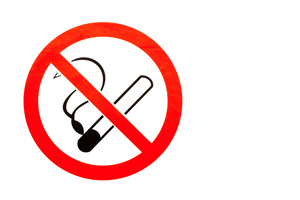A lawsuit being brought by a smokers’-rights group in Malaysia against a nationwide ban on tobacco smoking in public places has left some people, including some tobacco consumers, asking whether smoking is a protected right, according to a story by Yiswaree Palansamy for the Malay Mail.
Ahead of the court case, several lawyers reportedly told the Mail that the Federal Constitution did not protect the right to smoke in public, and that a ban could not be deemed unconstitutional because it was in the interests of public health.
“This is a very bizarre lawsuit,” lawyers for Liberty executive director Latheefa Koya were said to have told the Mail.
“There is no such guarantee, whether express or implied, of the right to smoke in public places in the Federal Constitution.
“There is also no right under the Constitution that allows individuals to pollute the air with cigarette smoke. It is impossible to understand how the ban can be unconstitutional.”
Latheefa added that the prospect of the group’s winning its case was low.
“Their argument that smokers will be isolated is absurd – because they can still visit and eat at all public eating places so long as they don’t smoke,” she said.
“Furthermore, it is the duty of the government to ensure that members of the public are protected from the harmful pollutants in cigarette smoke.
“The pernicious effects of second-hand smoke are scientifically well documented.”
Meanwhile, the civil liberties lawyer Syahredzan Johan said the group could argue that the ban was a breach of fundamental rights, but he was unconvinced by this argument.
“It is a weak argument because in the first place, there is no fundamental right to smoke,” he said.
Despite that, the political secretary to DAP [Democratic Action Party] MP Lim Kit Siang said the group was left with one recourse on which to base its legal challenge – irrationality.
“It goes back to whether it is reasonable or not,” said Syahredzan. “That’s the only leg that they can stand on: where there is a concept of irrationality.
“When you’re seeking a judicial review, that is the usual ground that you rely on – things like procedural impropriety.”

